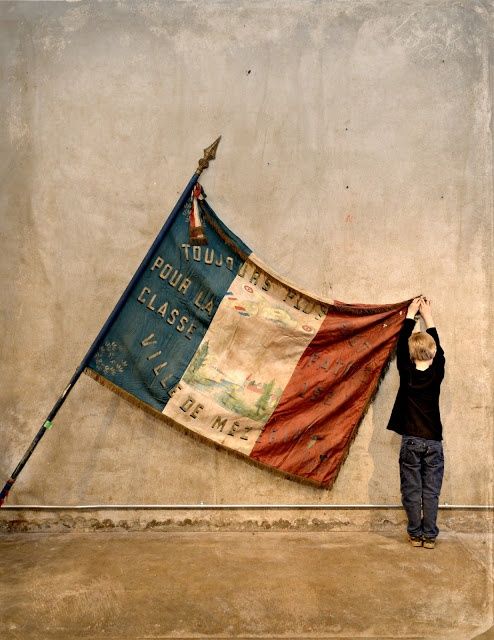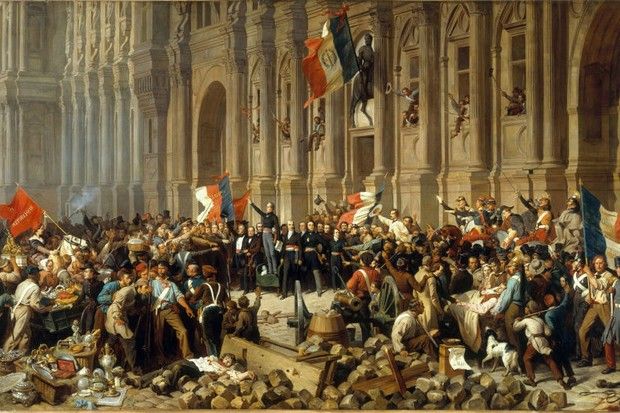The Rich History and Evolution of the French Language

Introduction: Exploring the Captivating Story of the French Language
French is one of the most widely spoken languages in the world, with a rich history that dates back centuries. From its humble beginnings as a regional dialect to its current status as a global language of diplomacy, culture, and commerce, the evolution of the French language is a fascinating tale. In this article, we’ll delve into the captivating history of this linguistic masterpiece, examining its origins, key developments, and the enduring influence it continues to hold.
The Roots of the French Language: From Latin to Gallo-Romance

The French language can trace its roots back to the Gallo-Romance dialects that emerged in the region of modern-day France during the decline of the Roman Empire. As the Roman Empire’s power waned, the local population gradually adopted a form of Vulgar Latin that was heavily influenced by the existing Celtic languages in the region. This hybrid language, known as Lingua Romana Rustica, or Vulgar Latin, would eventually evolve into the distinct Gallo-Romance dialects.
These Gallo-Romance dialects, which developed in various regions of France, shared a common linguistic foundation but also exhibited unique regional variations. This diversity laid the groundwork for the eventual emergence of the French language as we know it today.
The Emergence of Old French: Transformation and Diversification
As the Gallo-Romance dialects continued to evolve, they gradually coalesced into a more distinct language known as Old French. This period, spanning the 9th to the 14th centuries, saw the diversification of French into various regional dialects, each with its own unique characteristics and nuances.
The development of Old French was shaped by a range of factors, including the influx of Frankish and other Germanic influences, as well as the continued impact of the local Celtic languages. This resulted in a rich tapestry of linguistic variations, from the Francien dialect spoken in the Île-de-France region to the Picard and Burgundian dialects of the north, and the Poitevin-Saintongeais and Limousin dialects of the south.
The Influence of the Norman Conquest: A Transformative Moment

The Norman Conquest of England in 1066 had a profound impact on the French language. The influx of Norman French, which was a dialect of Old French, led to a significant infusion of French vocabulary and linguistic structures into the English language. This cultural and linguistic exchange had far-reaching consequences, shaping the development of both languages and contributing to the enduring influence of French in the English-speaking world.
The Norman Conquest also had a significant impact on the French language within France itself. The political and cultural dominance of the Normans, who were descendants of Scandinavian Vikings, helped to elevate the status of the Francien dialect spoken in the Île-de-France region. This paved the way for the eventual standardization and codification of the French language.
The Renaissance and the Standardization of French
During the Renaissance period, the French language underwent a process of standardization and codification. This was driven by the efforts of scholars, writers, and intellectuals who sought to establish a more unified and refined version of the language. Key figures in this endeavor included the poet and grammarian Joachim du Bellay, who advocated for the use of French in literary and scholarly works, and the lexicographer Robert Estienne, who published one of the first comprehensive dictionaries of the French language.
This period of linguistic transformation coincided with the rise of the French monarchy and the centralization of political power in Paris. The standardization of the French language was seen as a means of reinforcing national unity and cultural identity, as the language became a symbol of French pride and prestige.
The Spread of French: A Global Language of Influence
As France’s political and cultural influence expanded, the French language began to spread beyond the borders of the country. It became a language of diplomacy, literature, and high culture, gaining recognition as a global language of prestige and importance.
The French colonial empire, which spanned territories in Africa, the Caribbean, and parts of Asia, played a significant role in the dissemination of the French language. The colonial administration and educational systems promoted the use of French, leading to its adoption by local populations and the creation of distinct regional variations, such as Haitian Creole and Québécois French.
Additionally, the French language’s association with intellectual and artistic pursuits further cemented its status as a language of culture and refinement. French became the lingua franca of the European elite, used in diplomatic negotiations, scientific publications, and cultural exchanges.
The Impact of the French Revolution: A Linguistic Transformation
The French Revolution of 1789 had a significant impact on the French language. The overthrow of the monarchy and the establishment of a new social order led to changes in the way the language was used and perceived.
The revolutionary ideals of equality and nationalism fueled a desire to create a more accessible and inclusive version of the French language. This led to efforts to simplify the language, remove elitist and aristocratic elements, and promote the use of French among the broader population.
The French Revolution also saw the emergence of new political and social terminology, reflecting the transformative changes taking place in French society. Words such as “liberté,” “égalité,” and “fraternité” became powerful symbols of the revolutionary movement and were subsequently adopted into the French language.
The 20th Century and the Challenges of Globalization
In the 20th century, the French language faced new challenges as the world became increasingly globalized. The rise of English as a dominant international language and the influence of other cultures and languages posed a threat to the dominance of French.
The spread of American popular culture, the growth of multinational corporations, and the increasing use of English in international communication all contributed to a perceived decline in the status and usage of the French language. This prompted efforts by the French government and various organizations to protect and promote the French language both within France and on the global stage.
Efforts to Preserve and Promote the French Language
In response to the challenges facing the French language, various organizations and initiatives have been established to preserve and promote its use. These efforts have included language policies, educational programs, and cultural initiatives aimed at maintaining the vitality and relevance of this linguistic treasure.
The Académie Française, for example, has played a central role in codifying and regulating the French language, publishing dictionaries and guidelines to ensure its purity and integrity. Similarly, the Organisation internationale de la Francophonie (OIF) works to promote the use of French in international organizations and support the development of French-speaking communities around the world.
These initiatives have helped to reinforce the status of French as a language of global significance, ensuring that it continues to be a vibrant and dynamic means of communication and cultural expression.
The Future of the French Language: Adapting and Evolving
As the world continues to evolve, the French language must adapt and evolve as well. While it faces ongoing challenges, the rich history and enduring appeal of the French language suggest that it will continue to play a significant role in the global linguistic landscape for years to come.
The French language has demonstrated remarkable resilience in the face of cultural, political, and technological changes. Its ability to incorporate new vocabulary, expressions, and linguistic structures while maintaining its core identity is a testament to its versatility and adaptability.
As the global community becomes increasingly interconnected, the French language will likely continue to evolve, drawing influence from other languages and cultures, while simultaneously exerting its own influence on the linguistic landscape. This dynamic process of exchange and adaptation will ensure that the French language remains a vital and relevant means of communication and cultural expression for generations to come.
Conclusion: Celebrating the Enduring Legacy of the French Language
The history of the French language is a captivating story of transformation, adaptation, and enduring influence. From its humble beginnings as a regional dialect to its current status as a global language of significance, the French language has left an indelible mark on the world. As we celebrate its rich heritage and look to the future, we can appreciate the enduring legacy of this linguistic masterpiece, which continues to inspire and captivate people across the globe.